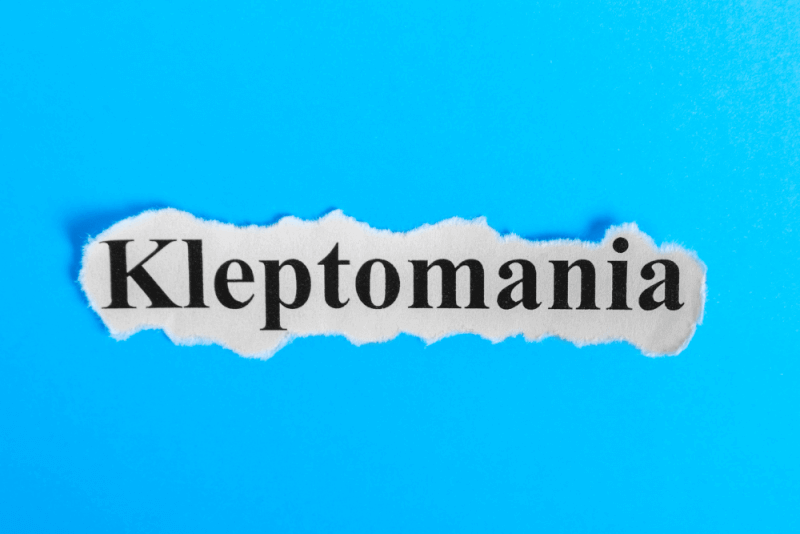What is Kleptomania (Stealing Disorder)?
Kleptomania is a mental disorder where a person feels an irresistible urge to steal things. People with this disorder know that stealing is wrong and can have legal consequences, but they cannot stop themselves.
It should be understood that kleptomania patients do not steal due to a lack of willpower, self-control, or character flaws. Instead, it is a medical condition where the person cannot resist the urge to steal. It is common for kleptomania patients to feel guilt, shame, or stress about stealing.
As a result, they often try to make amends by returning items, donating them to charity, or going back to pay for the items. Kleptomania is three times more common in women than in men and can occur at any age, from 4 to 70 years old.
Kleptomania (Stealing Disorder) Diagnosis Criteria
There are five criteria that must be met to diagnose kleptomania. These criteria are:
- Repeated unsuccessful attempts to stop stealing, and the items are not stolen out of need or to be sold.
- Feeling tension and anticipation before stealing
- Feeling positive emotions or satisfaction immediately after stealing
- The act of stealing is not a response to emotional feelings, and it is not due to delusions or hallucinations.
- The behavior cannot be better explained by another mental health condition such as a conduct disorder, manic behavior, or antisocial personality disorder.
There are no specific tests to diagnose kleptomania, but tests may be conducted to rule out other health conditions.
Causes of Kleptomania (Stealing Disorder)
The exact cause of kleptomania is not known, but some potential causes and indicative evidence exist. These include:
- It is possible that people with kleptomania have differences in the structure of their brains, particularly in areas that manage impulse control and inhibition. These differences may also be observed in the weaker or fewer connections in brain regions that control inhibition.
- The brain uses specific chemicals called neurotransmitters to communicate and manage processes. There have been cases where kleptomania developed after starting medications that affect these chemicals. However, these cases are rare, and more research is needed to understand this.
- In some patients, kleptomania is considered a symptom. These patients often have other mental health issues such as anxiety, depression, eating disorders, addictions, and substance use disorders. Additionally, kleptomania patients are at a higher risk for self-harm and suicide.
- Finally, it is not fully known whether kleptomania is inherited. However, kleptomania patients often have family members with various mental health issues such as anxiety, depression, and substance use disorders.
Treatment Methods for Kleptomania (Stealing Disorder)
There is no standard treatment for kleptomania, and research on which treatments are most effective is limited. This is because kleptomania patients rarely seek treatment at healthcare facilities. The most common treatment methods for kleptomania are divided into two categories:
Medication
One of the first-line treatment options is medication that blocks the effects of opioid drugs. Some research supports the effectiveness of these medications. Known as opioid antagonists, these drugs block the positive feelings experienced during theft, helping the person resist the urge to steal. Other types of medications used include antidepressants, seizure-preventing drugs, and lithium.
Psychotherapy
Also known as mental health therapy or behavioral therapy, this method aims to help the patient understand why they do certain things. It also helps develop ways to change and avoid these behaviors. These therapies can take many forms, including group therapy and hypnosis.
Characteristics of Kleptomania (Stealing Disorder)
People with kleptomania exhibit the following characteristics:
- Unlike criminal theft, kleptomania patients do not obsessively steal for personal gain, revenge, or rebellion. The impulse is so strong that they cannot resist the urge to steal.
- Patients usually steal suddenly, without planning, and without the help of others.
- Most kleptomania patients steal in public places like stores.
- The stolen items have no value to the patient, and they usually have the financial means to purchase them.
- Patients may hoard the stolen items without using them. They may also donate these items, give them as gifts to family or friends, or secretly return them.
- The urge to steal in patients can come and go, or it may decrease or increase over time.
How to Treat Individuals with Kleptomania (Stealing Disorder)
If you suspect that a close friend or family member may have kleptomania, it is important to express your concerns gently. Because kleptomania is a mental health disorder, not a character flaw, it is important to approach the person without judgment or blame. It may also be helpful to emphasize the following points:
- Express that you are concerned because you care about the person's health and well-being.
- Explain that you are worried about the risks of losing their job, being arrested, or damaging a valuable relationship due to their stealing.
- Acknowledge that you understand the urge to steal in kleptomania patients cannot be overcome by willpower alone.
- Remind them that there are various treatment options available.
Preparing for this conversation with the help of expert psychiatrists can make it easier to express your concerns without making the person feel defensive or threatened.
Who is Affected by Kleptomania (Stealing Disorder)?
Kleptomania typically begins in adolescence or young adulthood. About two-thirds of patients are women. Other risk factors for kleptomania include:
- Having parents or siblings with kleptomania or addictive disorders
- Having other mental health disorders such as anxiety, depression, or substance use disorders
Kleptomania Complications
If left untreated, kleptomania can lead to serious emotional, familial, work-related, legal, and financial problems. Knowing that stealing is wrong but feeling powerless to resist the urge can lead to various psychological problems.
There can also be legal issues. Other complications include:
- Other impulse control disorders, such as compulsive gambling or shopping
- Substance abuse of alcohol or other drugs
- Personality disorders
- Eating disorders
- Depression
- Bipolar disorder
- Anxiety disorders
- Suicidal tendencies







